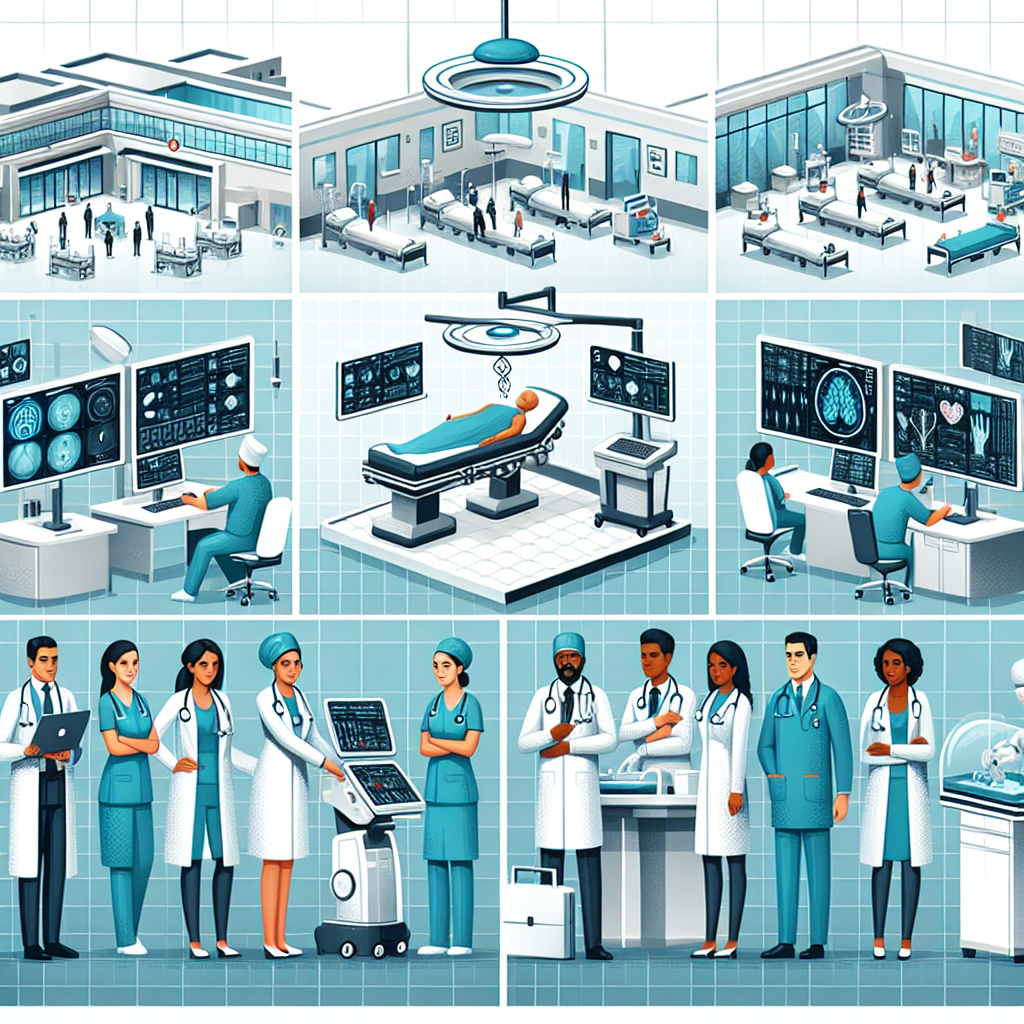In recent years, the integration of Artificial Intelligence (AI) in healthcare has been revolutionizing the industry and improving the quality of care for patients. AI technology has the potential to transform the way healthcare is delivered, making processes more efficient, accurate, and personalized. From diagnosing diseases to predicting patient outcomes, AI is changing the way healthcare professionals work and improving patient outcomes. In this article, we will explore the benefits of AI integration for healthcare quality and how it is shaping the future of medicine.
1. Improved Diagnostics and Treatment Planning
One of the most significant benefits of AI integration in healthcare is the improvement in diagnostics and treatment planning. AI algorithms can analyze vast amounts of patient data, including medical history, lab results, imaging scans, and genetic information, to detect patterns and identify potential health issues. This can help healthcare professionals make more accurate diagnoses and develop personalized treatment plans for patients.
AI-powered diagnostic tools can also help in early detection of diseases, such as cancer, by analyzing imaging scans and identifying abnormalities that may not be visible to the human eye. This early detection can lead to better treatment outcomes and improved survival rates for patients.
2. Enhanced Patient Care
AI integration in healthcare can also improve patient care by providing real-time monitoring and personalized treatment recommendations. For example, AI-powered wearable devices can track patients’ vital signs and alert healthcare providers to any abnormalities, allowing for early intervention and preventing complications.
Additionally, AI algorithms can analyze patient data to predict potential health risks and recommend preventive measures to improve overall health. This proactive approach to patient care can lead to better health outcomes and reduce healthcare costs by preventing costly hospitalizations and treatments.
3. Streamlined Administrative Processes
AI technology can also streamline administrative processes in healthcare, such as scheduling appointments, billing, and coding. AI-powered systems can automate repetitive tasks, reducing the burden on healthcare professionals and improving efficiency in healthcare organizations.
For example, AI-powered chatbots can handle patient inquiries and schedule appointments, freeing up staff to focus on more critical tasks. AI algorithms can also analyze medical records and generate accurate billing codes, reducing errors and ensuring timely payment for services rendered.
4. Drug Discovery and Development
AI integration in healthcare is also revolutionizing drug discovery and development by accelerating the process of identifying new drugs and treatments. AI algorithms can analyze vast amounts of biological data to identify potential drug targets and predict their efficacy in treating specific diseases.
This can lead to the development of new drugs more quickly and cost-effectively, bringing life-saving treatments to patients faster. AI-powered drug discovery platforms can also help identify existing drugs that may be repurposed for new indications, expanding treatment options for patients.
5. Predictive Analytics and Population Health Management
AI integration in healthcare is also transforming the way healthcare organizations manage population health by analyzing data to predict disease outbreaks, identify high-risk populations, and recommend interventions to improve health outcomes.
AI algorithms can analyze electronic health records, social determinants of health, and other data sources to identify trends and patterns that may indicate potential health risks. This information can help healthcare organizations develop targeted interventions to prevent disease and improve overall population health.
Frequently Asked Questions (FAQs):
1. How is AI used in healthcare?
AI is used in healthcare in various ways, including diagnosing diseases, predicting patient outcomes, personalizing treatment plans, improving patient care, streamlining administrative processes, accelerating drug discovery and development, and managing population health.
2. Is AI integration in healthcare safe?
AI integration in healthcare is safe when implemented correctly and following strict data privacy and security protocols. Healthcare organizations must ensure that AI algorithms are accurate, reliable, and compliant with regulatory requirements to protect patient information and ensure the safety of patients.
3. Will AI replace healthcare professionals?
AI technology is not meant to replace healthcare professionals but to enhance their capabilities and improve patient care. Healthcare professionals will still play a crucial role in providing compassionate care, making clinical decisions, and overseeing patient treatment plans, while AI technology can support them by providing data-driven insights and recommendations.
4. How can healthcare organizations implement AI integration?
Healthcare organizations can implement AI integration by partnering with AI technology providers, investing in AI-powered systems and tools, training staff on AI technology, and ensuring data interoperability and security. It is essential to have a strategic plan for AI integration and involve all stakeholders in the implementation process to maximize the benefits of AI technology in healthcare.
In conclusion, the integration of AI in healthcare offers numerous benefits for improving healthcare quality, including enhanced diagnostics and treatment planning, improved patient care, streamlined administrative processes, accelerated drug discovery and development, and predictive analytics for population health management. As AI technology continues to advance, healthcare organizations must embrace AI integration to stay competitive, improve patient outcomes, and drive innovation in healthcare delivery. By leveraging AI technology effectively, healthcare professionals can provide more personalized, efficient, and effective care to patients, shaping the future of medicine for years to come.

